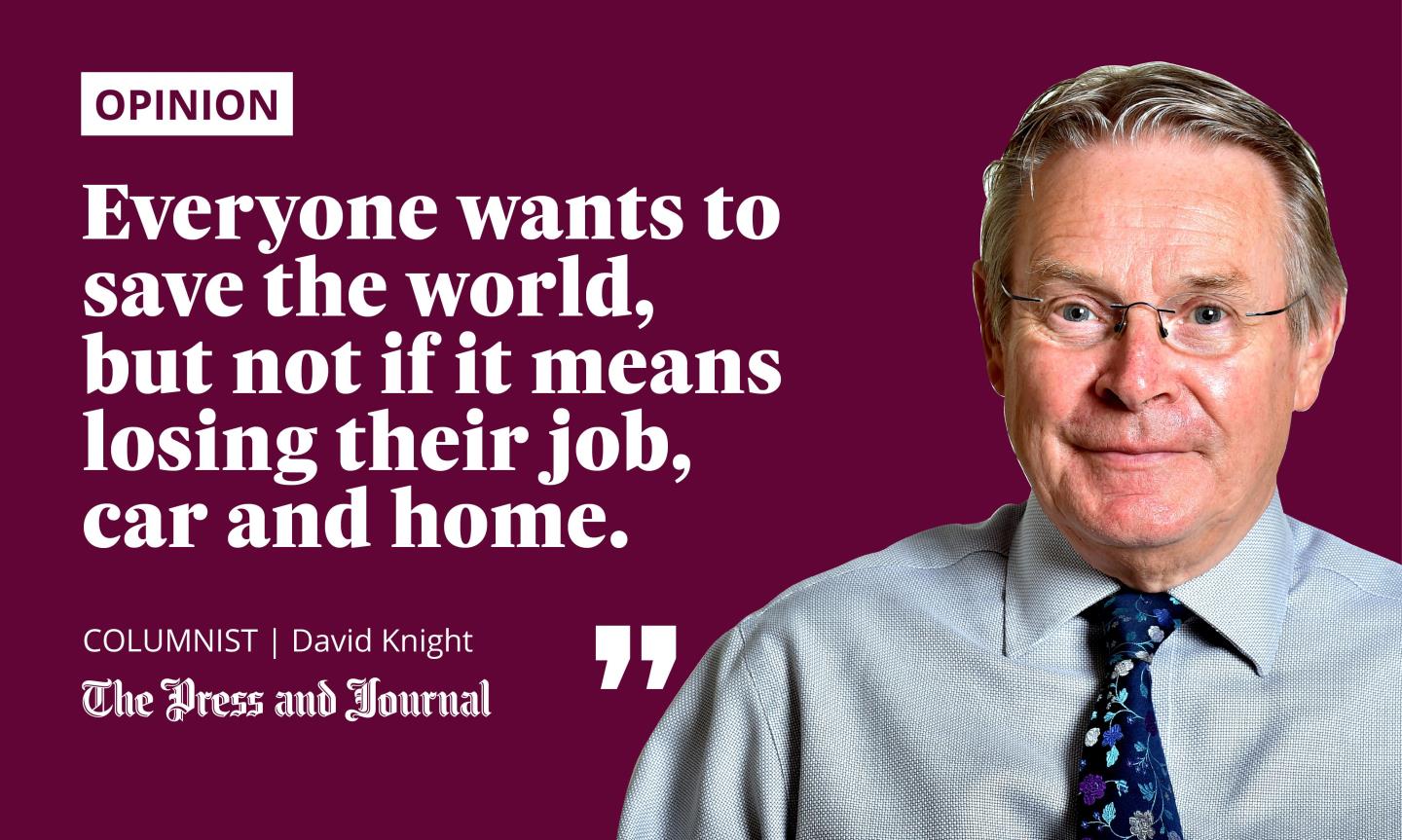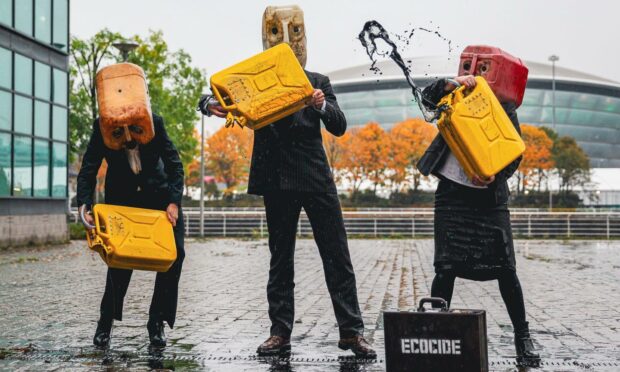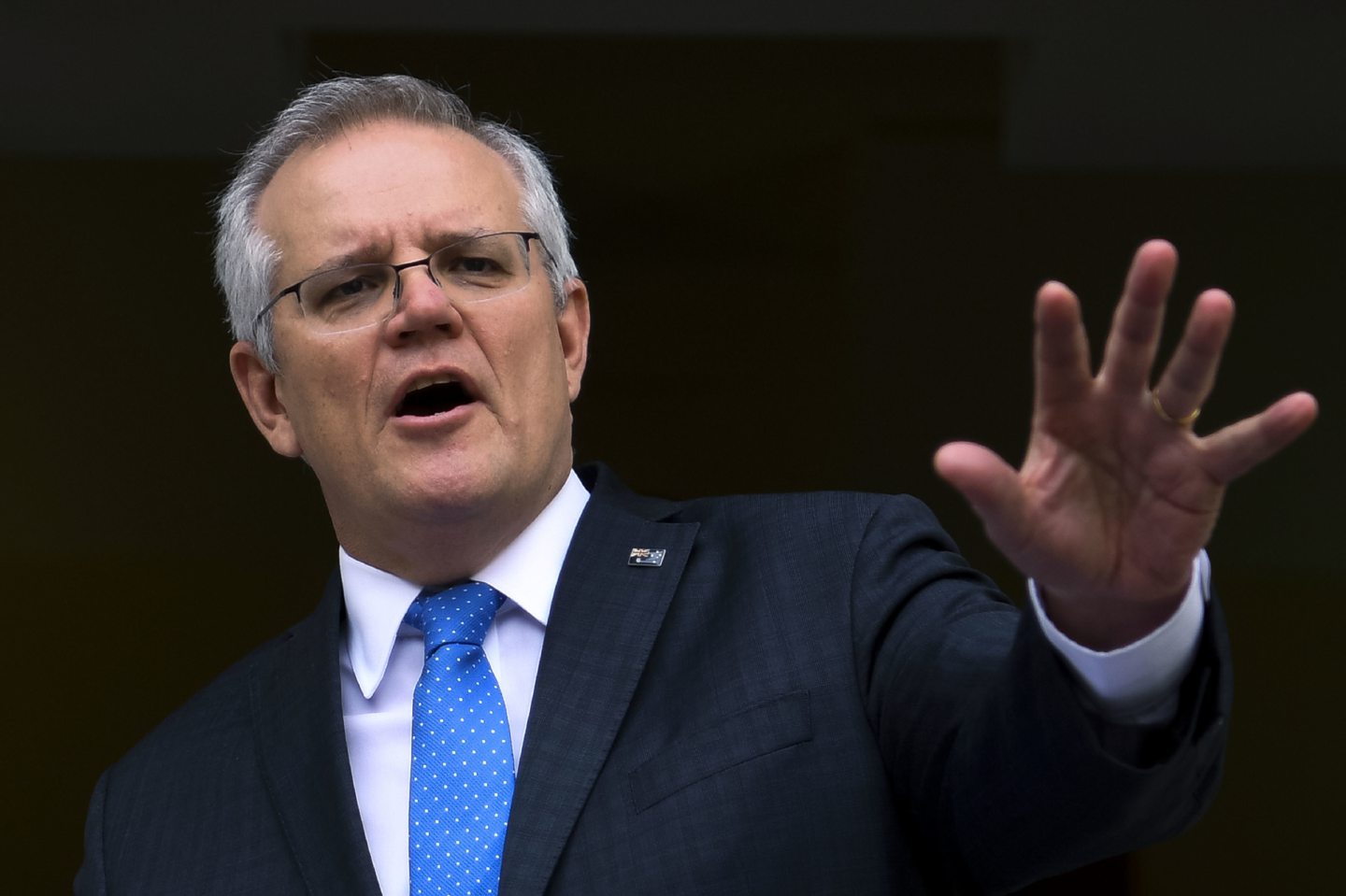I was berating a man behind the counter in the M&S bakery – in a gentle way, I have to say – about not having apple turnovers again.
It was the second day running that their regular shelf looked forlorn and empty. Tut tut; this won’t do.
I got the impression the lorry driver delivery crisis was being blamed, yet again.
I made do with raspberry-filled doughnuts in the end, in case you are curious.
But, with COP26 starting yesterday in Glasgow, I wondered if apple turnovers and doughnuts were a threat to the world. I couldn’t see them rubbing shoulders with red meat and dairy as worst offenders.

The humble doughnut is actually the inspiration for a solution to the climate change crisis: “doughnut economics” really is a thing.
Another threat to progress on climate change is human avarice and self-interest on a personal and political level. Forcing change at a sensible pace is at the heart of this dilemma.
Ordinary people suffer the most
As I left, clutching my bag of doughnuts, I read breaking news on my mobile that you could buy a six month-old baby girl in Afghanistan for £360. It kind of brings things into perspective, doesn’t it?
I knew it was true, as I could see her mother explaining why she had accepted the cash, but her baby would not be handed over until she could walk. What fate will befall her?
I’d suddenly lost my appetite for those delicious doughnut treats made of flour and fried in hot oil.
In a bitter irony, the girl’s father explained away their heartbreaking decision. They were starving because they could not buy flour or oil to bake their own food. War, the Taliban and world sanctions are creating these hardships for ordinary people who suffer the most.
It’s not climate change, but people elsewhere in impoverished countries are facing similar horrendous decisions because of excessive emissions in some developed countries. They filter down and cause catastrophes in remote backward regions.
Setting the pace of change is the biggest challenge
Economic thuggery shows its face in various ways. For example, Moldova’s factories are grinding to halt due to energy rationing after Russia threatened to pull the plug on gas supplies – allegedly in retaliation for a recent anti-Russia vote.
A fundamental obstacle is a familiar shrug of the shoulders accompanied by: ‘Other countries are not bothering, so why should I? I won’t make any difference’
Political power and greed are bubbling under a thin veneer of chumminess and sympathetic soundbites from COP26. Political pragmatism is in the mix, too.
Australia is one of the heavyweight bad boys on climate change; jaws dropped when it set a deadline for its compliance over fossil fuels, but parked it 30 years down the road. It was as though Australia was trundling towards climate change as a spin bowler might amble up to the crease at the Gabba cricket ground in Brisbane.
Like every other government, it has a home market to consider, which includes protecting major industries driving economic success and providing jobs and lifestyles to which millions of people have become accustomed.
Everyone wants to save the world, but not if it means losing their job, car and home.
Setting the right balance over the pace of change is the biggest challenge. And a fundamental obstacle is a familiar shrug of the shoulders accompanied by: “Other countries are not bothering, so why should I? I won’t make any difference.”
The UK Government, supported by its devolved administrations, faces the same dilemma.
The slogan “levelling up” helped steal Labour red seats for the Tories in England two years ago, but it might feel like levelling down if jobs and industries disappear too rapidly in order to meet climate targets.
Public freedoms may be sacrificed to stop climate change
Changes to society wrought by Covid were seismic, particularly sweeping government powers invoked across the UK, which curbed civil liberties like never before in modern history.
I suddenly received a text saying I was eligible for something; I couldn’t wait to see what goodies were being offered. It was only an invitation to apply for my free Covid pass.
I smiled wryly as I recalled that I wrote calling for Covid passports at the start of the year when ministers were still dithering over human rights implications; it just seemed so obvious to me.
But not all powers are welcome. I can foresee a day when powers to restrict public freedoms return with a vengeance – not to protect us from Covid, but to facilitate harsher climate change measures in years ahead.
We could feel the heat from a new climate-driven era of local lockdowns, restrictions on movement and certain foods, even rationing. It might sound alarmist, but sweeping Covid powers showed us anything was possible in a global crisis.
David Knight is the long-serving former deputy editor of The Press and Journal












